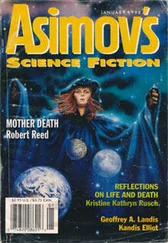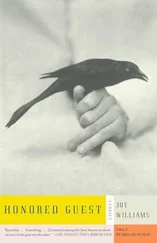Joy Williams - Taking Care
Здесь есть возможность читать онлайн «Joy Williams - Taking Care» весь текст электронной книги совершенно бесплатно (целиком полную версию без сокращений). В некоторых случаях можно слушать аудио, скачать через торрент в формате fb2 и присутствует краткое содержание. Год выпуска: 2010, Издательство: Vintage, Жанр: Современная проза, на английском языке. Описание произведения, (предисловие) а так же отзывы посетителей доступны на портале библиотеки ЛибКат.
- Название:Taking Care
- Автор:
- Издательство:Vintage
- Жанр:
- Год:2010
- ISBN:нет данных
- Рейтинг книги:5 / 5. Голосов: 1
-
Избранное:Добавить в избранное
- Отзывы:
-
Ваша оценка:
- 100
- 1
- 2
- 3
- 4
- 5
Taking Care: краткое содержание, описание и аннотация
Предлагаем к чтению аннотацию, описание, краткое содержание или предисловие (зависит от того, что написал сам автор книги «Taking Care»). Если вы не нашли необходимую информацию о книге — напишите в комментариях, мы постараемся отыскать её.
Taking Care — читать онлайн бесплатно полную книгу (весь текст) целиком
Ниже представлен текст книги, разбитый по страницам. Система сохранения места последней прочитанной страницы, позволяет с удобством читать онлайн бесплатно книгу «Taking Care», без необходимости каждый раз заново искать на чём Вы остановились. Поставьте закладку, и сможете в любой момент перейти на страницу, на которой закончили чтение.
Интервал:
Закладка:
The train had not yet left the station even though it was two hours past the posted departure time. An announcement had just been made that said that a two-hour delay was built into the train’s schedule.
“They make up the time at night,” Jane said. She plucked the postcard from Dan’s hand. “This is a good one,” she said. “I think you’re sending it to Jim Anderson just so you can save it yourself.” She read aloud, “This is a photograph of the Phantom Dream Car crashing through a wall of burning television sets before a cheering crowd at the Cow Palace in San Francisco.”
At the beginning of summer, Dan’s mother had given her one hundred dollars, four packages of new underwear and three dozen stamped postcards. Most of the cards were plain but there were a few with odd pictures on them. Dan’s mother wanted to hear from her twice weekly throughout the summer. She had married a man named Jake, who was a carpenter. Jake had already built Dan three bookcases. This seemed to be the extent of what he knew how to do for Dan.
“I only have three left now,” Dan said, “but when I get home, I’m going to start my own collection.”
“I’ve been through that phase,” Jane said. “It’s just a phase. I don’t think you’re much of a correspondent. You wrote, ‘I got sunburn. Love, Dan’ … ‘I bought a green Frisbee. Love, Dan’ … ‘Mrs. Muirhead has swimmer’s ear. Love, Dan’ … ‘Mr. Muirhead went water-skiing and cracked his rib. Love, Dan’ … When you write to people you should have something to say.”
Dan didn’t reply. She had been Jane’s companion for a long time, and was wearying of what Jane’s mother called her “effervescence.”
Jane slapped Dan on the back and hollered, “Danica Anderson, for Godssakes! What is a clod like yourself doing on this fabulous journey!”
Together, as the train began to move, the girls made their way to the Starlight Lounge in Car 7 where Mr. and Mrs. Muirhead told them they would be enjoying cocktails. They hesitated in the car where the train’s magician was with his audience, watching him while he did the magic silks trick, the cut and restored handkerchief trick, the enchanted salt shaker trick, and the dissolving quarter trick. The audience, primarily retirees, screamed with pleasure.
“I don’t mind the tricks,” Jane whispered to Dan, “but the junk that gets said drives me crazy.”
The magician was a young man with a long spotted face. He did a lot of card forcing. Again and again, he called the card that people chose from a shuffled deck. Each time that the magician was successful, the audience participant yelled and smiled and in general acted thrilled. Jane and Dan passed on through.
“You don’t really choose,” Jane said. “He just makes you think you choose. He does it all with his pinky.” She pushed Dan forward into the Starlight Lounge where Mrs. Muirhead was on a banquette staring out the window at a shed and an unkempt bush which was sliding slowly past. She was drinking a martini. Mr. Muirhead was several tables away talking to a young man wearing jeans and a yellow jacket. Jane did not sit down. “Mummy,” she said, “can I have your olive?”
“Of course not,” Mrs. Muirhead said, “it’s soaked in gin.”
Jane, Dan in tow, went to her father’s table. “Daddy,” Jane demanded, “why aren’t you sitting with Mummy? Are you and Mummy having a fight?”
Dan was astonished at this question. Mr. and Mrs. Muirhead fought continuously and as bitterly as vipers. Their arguments were baroque, stately, and although frequently extraordinary, never enlightening. At breakfast, they would be quarreling over an incident at a cocktail party the night before or a dumb remark made fifteen years ago. At dinner, they would be howling over the fate, which they called by many names, which had given them one another. Forgiveness, charity and cooperation were qualities unknown to them. They were opponents pur sang. Dan was sure that one morning, Jane would be called from her classroom and told as gently as possible by Mr. Mooney, the school principal, that her parents had splattered one another’s brains all over the lanai.
Mr. Muirhead looked at the children sorrowfully and touched Jane’s cheek.
“I am not sitting with your mother because I am sitting with this young man here. We are having a fascinating conversation.”
“Why are you always talking to young men?” Jane asked.
“Jane, honey,” Mr. Muirhead said, “I will answer that.” He took a swallow of his drink and sighed. He leaned forward and said earnestly, “I talk to so many young men because your mother won’t let me talk to young women.” He remained hunched over, patting Jane’s cheek for a moment, and then leaned back.
The young man extracted a cigarette from his jacket and hesitated. Mr. Muirhead gave him a book of matches. “He does automobile illustrations,” Mr. Muirhead said.
The young man nodded. “Belly bands. Pearls and flakes. Flames. All custom work.”
Mr. Muirhead smiled. He seemed happier now. Mr. Muirhead loved conversations. He loved “to bring people out.” Dan supposed that Jane had picked up this pleasant trait from her father and distorted it in some perversely personal way.
“I bet you have a Trans Am yourself,” Jane said.
“You are so-o-o right,” the young man said. “It’s ice-blue. You like ice-blue? Maybe you’re too young.” He extended his hand showing a large gaudy stone in a setting that seemed to be gold. “Same color as this ring,” he said.
Dan nodded. She could still be impressed by adults. Their mysterious, unreliable images still had the power to attract and confound her, but Jane was clearly not interested in the young man. She demanded much of life. She had very high standards when she wanted to. Mr. Muirhead ordered the girls ginger ales and the young man and himself another round of drinks. Sometimes the train, in the mysterious way of trains, would stop, or even reverse, and they would pass unfamiliar scenes once more. The same green pasture filled with slanty light, the same row of clapboard houses, each with the shades of their windows drawn against the heat, the same boats on their trailers, waiting on dry land. The moon was rising beneath a spectacular lightning and thunder storm. People around them were commenting on it. Close to the train, a sheen of dark birds flew low across a dirt road.
“Birds are only flying reptiles, I’m sure you’re all aware,” Jane said suddenly.
“Oh my God, what a horrible thought!” Mr. Muirhead said. His face had become a little slack and his hair had become somewhat disarranged.
“It’s true, it’s true,” Jane sang. “Sad but true.”
“You mean like lizards and snakes?” the young man asked. He snorted and shook his head.
“Glorified reptiles, certainly,” Mr. Muirhead said, recovering a bit of his sense of time and place.
Dan suddenly felt lonely. It was not homesickness, although she would have given anything at that moment to be poking around in her little aluminum boat with Jim Anderson. But she wouldn’t be living any longer in the place she thought of as “home.” The town was the same but the place was different. The house where she had been a little tiny baby and had lived her whole life belonged to someone else now. Over the summer, her mother and Jake had bought another house which Jake was going to fix up.
“Reptiles have scales,” the young man said, “or else they are long and slimy.”
Dan felt like bawling. She could feel the back of her eyes swelling up like cupcakes. She was surrounded by strangers saying crazy things. Even her own mother often said crazy things in a reasonable way that made Dan know she was a stranger too. Dan’s mother told Dan everything. Her mother told her she wouldn’t have to worry about having brothers or sisters. Her mother discussed the particular nature of the problem with her. Half the things Dan’s mother told her, Dan didn’t want to know. There would be no brothers and sisters. There would be Dan and her mother and Jake, sitting around the house together, caring deeply for one another, sharing a nice life together, not making any mistakes.
Читать дальшеИнтервал:
Закладка:
Похожие книги на «Taking Care»
Представляем Вашему вниманию похожие книги на «Taking Care» списком для выбора. Мы отобрали схожую по названию и смыслу литературу в надежде предоставить читателям больше вариантов отыскать новые, интересные, ещё непрочитанные произведения.
Обсуждение, отзывы о книге «Taking Care» и просто собственные мнения читателей. Оставьте ваши комментарии, напишите, что Вы думаете о произведении, его смысле или главных героях. Укажите что конкретно понравилось, а что нет, и почему Вы так считаете.












